
1 . “Within the next two decades autos will be made with folding wings.” — Eddie Rickenbacker, pilot (1924)

Flying cars? No, not too feasible right now. If the world had a flying interstate highway, it would be unregulated and out of control! Perhaps in the next 100 years, but 2013 isn’t quite ready for Jetson-esque transportation yet.
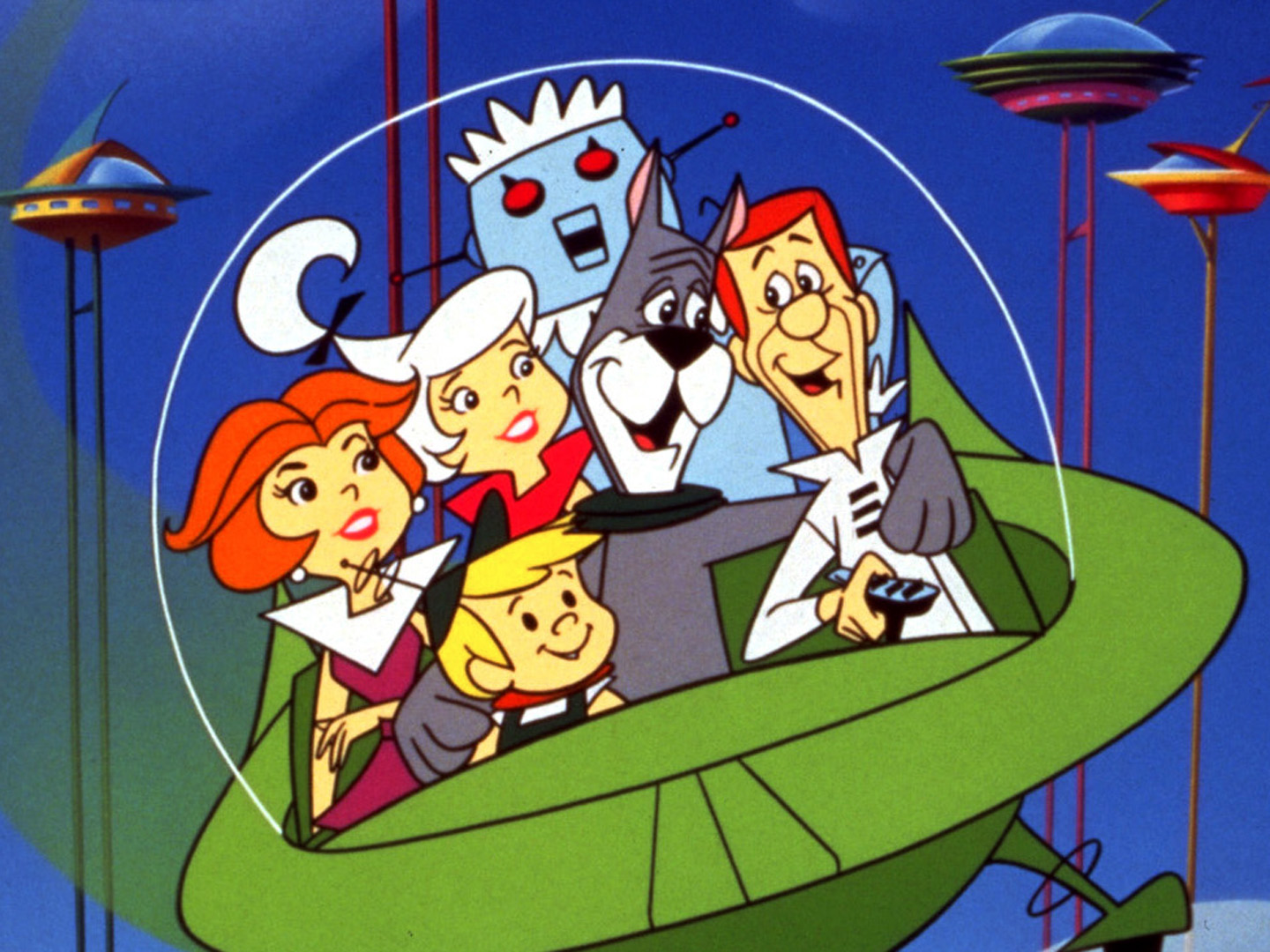
2. Computers are useless in homes 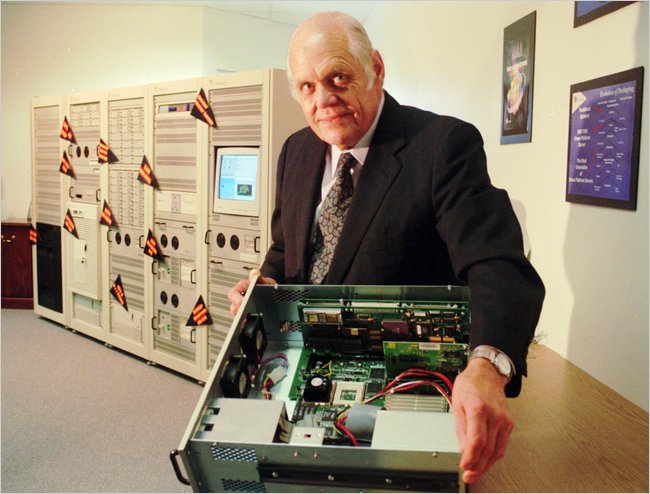
Image: NY Times
To be fair, this statement was true until the '80s, and then the popularity and demand for computers boomed! We also have to consider that these statements were made in the era where the size of computers filled up an entire room. Ken Olson, president of DEC (one of the first companies to make computing machines), announced in 1977 that “there is no reason anyone would want a computer in their home.” DEC was soon acquired by Compaq, and later Hewlett Packard — go figure.
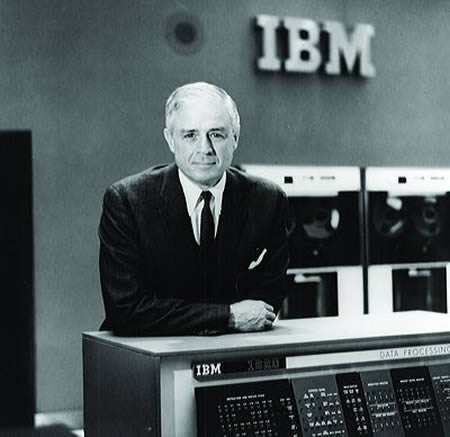
In 1943, Thomas Watson from IBM stated, “I think there is a world market for maybe five computers.” Seeing as the average household now owns two computers, Olson and Watson would pass out from awe.
3. The iPhone has no chance
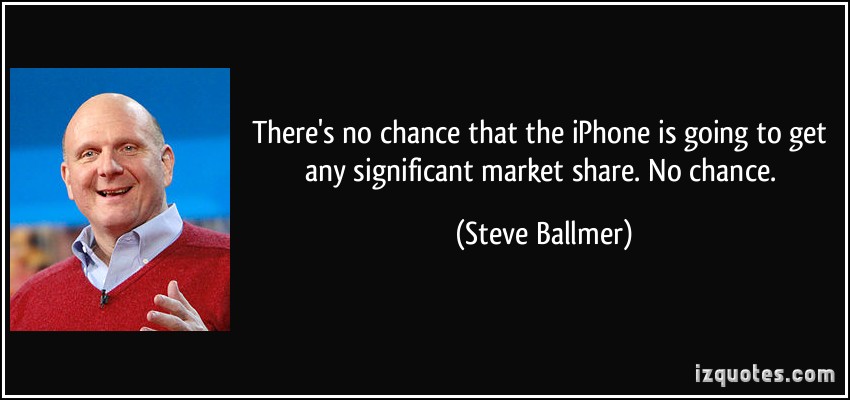
Absolutely incorrect! In a 2007 interview with USA Today, Ballmer believed that high iPhone prices would deter customers. Each hour, 16,000 iPhones are sold globally.
42% of the U.S. smartphone market share is held by iPhones and 13.1% worldwide.
4.

Star of the silent film and world-class producer Charlie Chaplin predicted that films would lose popularity in the future.
Similarly, in 1927, H.M. Warner, co-founder of Warner Brothers said, “Who the hell wants to hear actors talk?”

Interestingly enough, the movie industry is still booming. The average PG-13 film grosses $48,376,044, and people are still going to movie theaters even though you can stream practically anything online.
5. “Home Taping Is Killing Music”
How this: 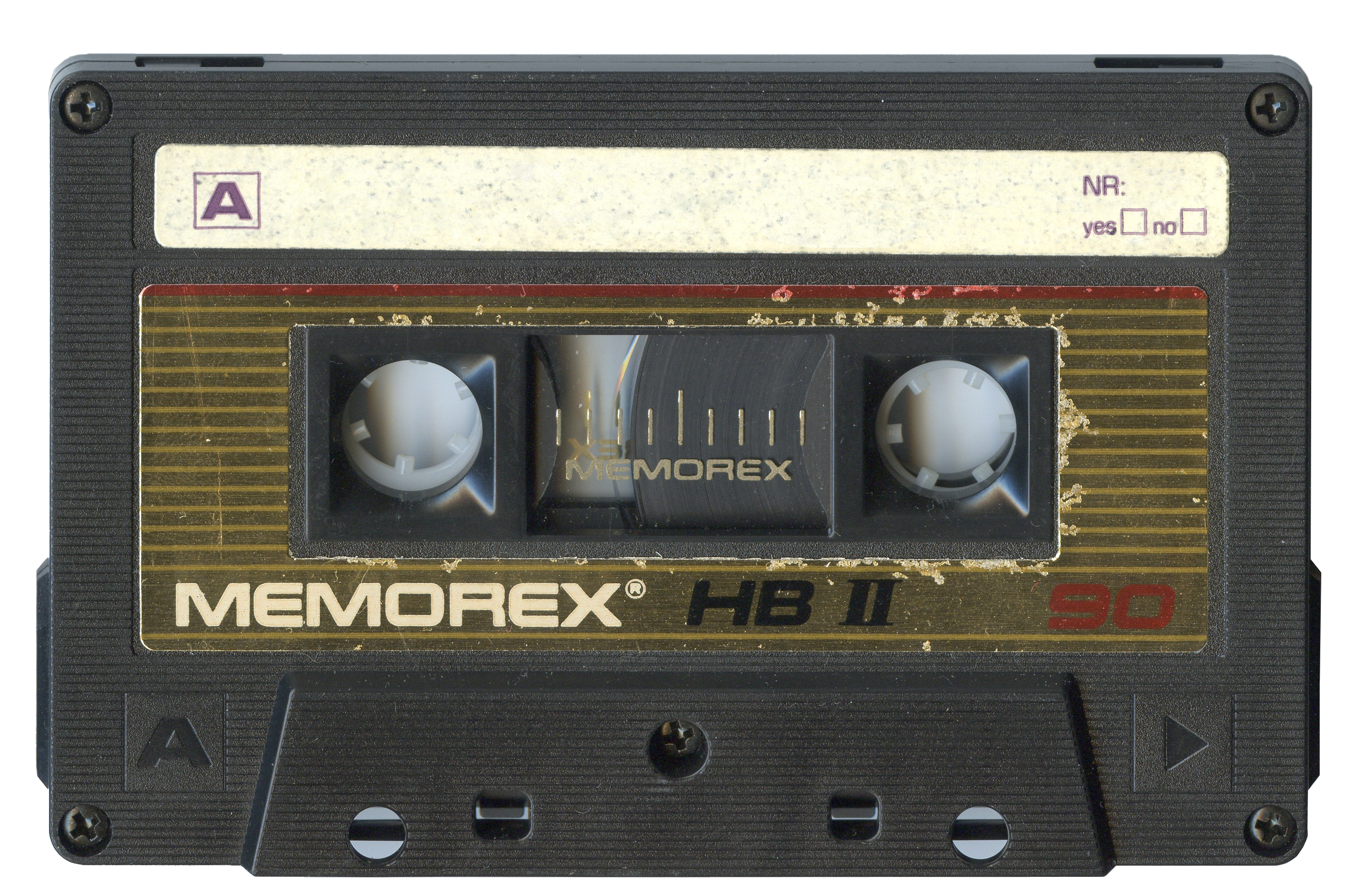
Became this: 
A campaign by the BPI in the 1980s claimed that people ripping audio from the radio would kill the music industry. Even though sales are now down from pirating, the industry is still standing and grossing millions each year. Recording the radio onto tape was piracy in its infancy stage, acting as a precursor to the full grown Limewire.
6. Ships sailing against wind
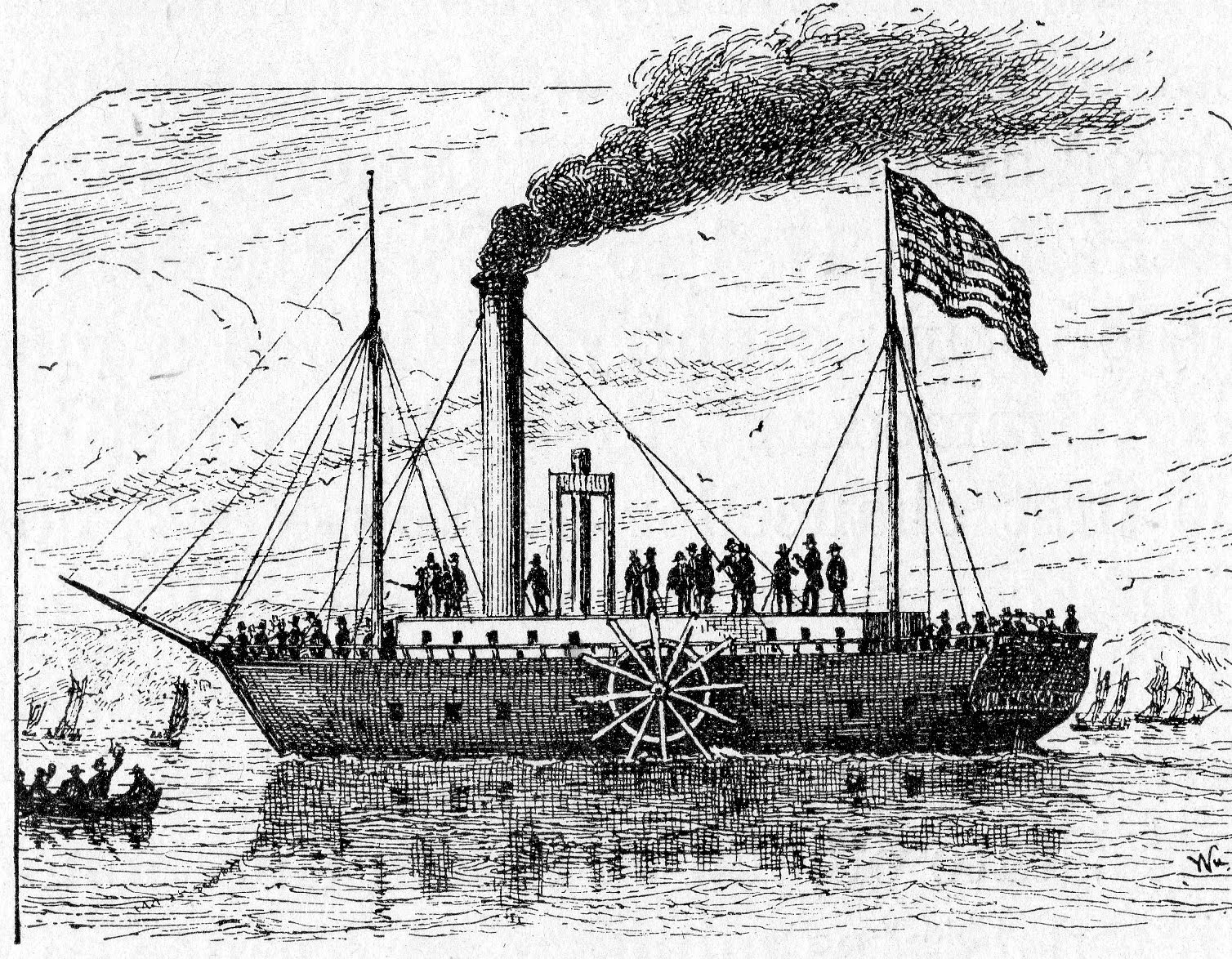
When Napoleon Bonaparte heard of Robert Fulton’s steamboat in 1800, his retort was, “How, sir, would you make a ship sail against the wind and currents by lighting a bonfire under her deck? I pray you, excuse me, I have not the time to listen to such nonsense.”
Perhaps if Napoleon made time to become informed of this “nonsense,” he would’ve been able to get to his destination faster.
7. No space launches for rockets

In 1936, The New York Times predicted that “A rocket will never be able to leave the Earth’s atmosphere.” The German V2 was the first rocket to leave Earth’s atmosphere By the time 10 years passed, America launched the first-American built rocket that successfully left Earth’s atmosphere.
8. The telephone is a hoax

In 1868, a NY Newspaper reported, “A man has been arrested in New York for attempting to extort funds from ignorant and superstitious people by exhibiting a device which he says will convey the human voice any distance over metallic wires so that it will be heard by the listener at the other end. He calls this instrument a telephone. Well-informed people know that it is impossible to transmit the human voice over wires.”

People were outraged by the thought of talking to someone at a distance across wires. The masses eventually got over their fear of being sucked into the “hoax,” and realized how much the invention actually benefitted them.
9. The radio is useless

In 1921, David Sarnoff thought that radio was not worth the investment. He assumed that “the wireless music box has no imaginable commercial value,” and asked, “Who would pay for a message sent to no one in particular?” Radio was a massive source of entertainment that inspired the invention of the television and then the computer. By 1922, there were more than 600 radio stations and having a radio in the house became a prime source of entertainment.
10. Segways will outdo bicycles for green efficiency

Unless you’re a mall security guard, or roped into a Segway tour in a foreign country, you’re probably not using one of these. The thought of buying one has never even crossed your mind. They are pointless pieces of machinery, and you look ridiculous using one. And you’d never want to pull a President Bush when trying one out for the first time.

Moral of the story: There will always be an opinion on the changing world of technology. People don’t initially like change, and there will always be a naysayer for every situation and idea. People are frightened by new technological advancements, and they fear that their familiar little world be altered forever.
Advertisement
Learn more about Electronic Products Magazine





